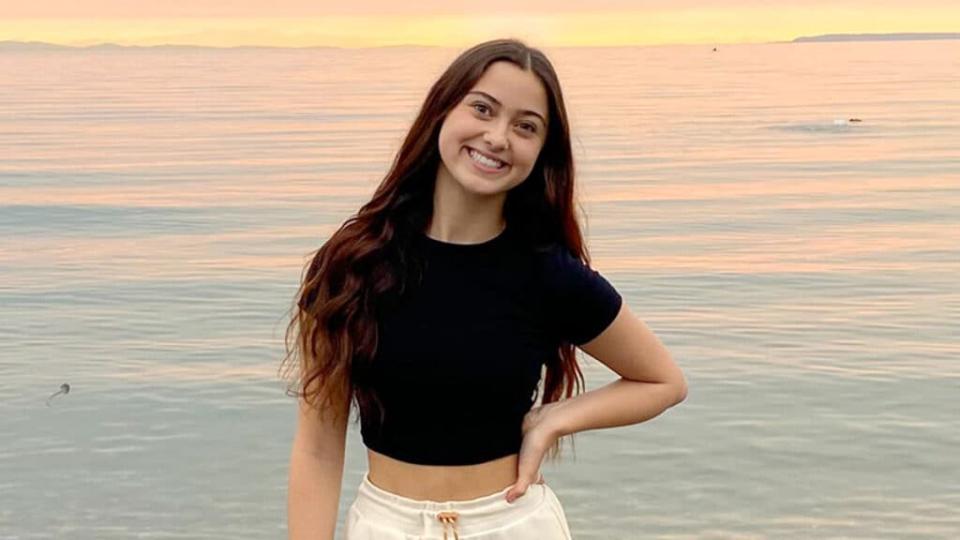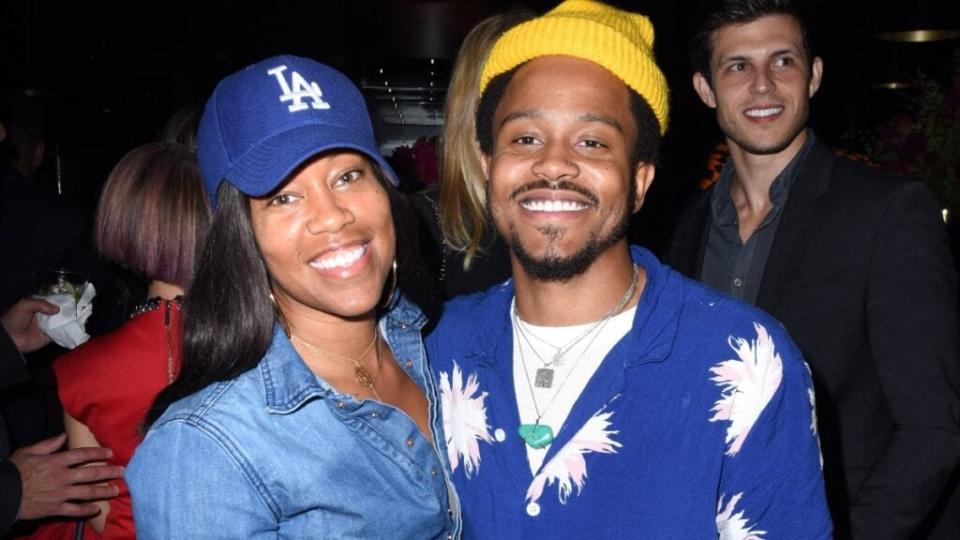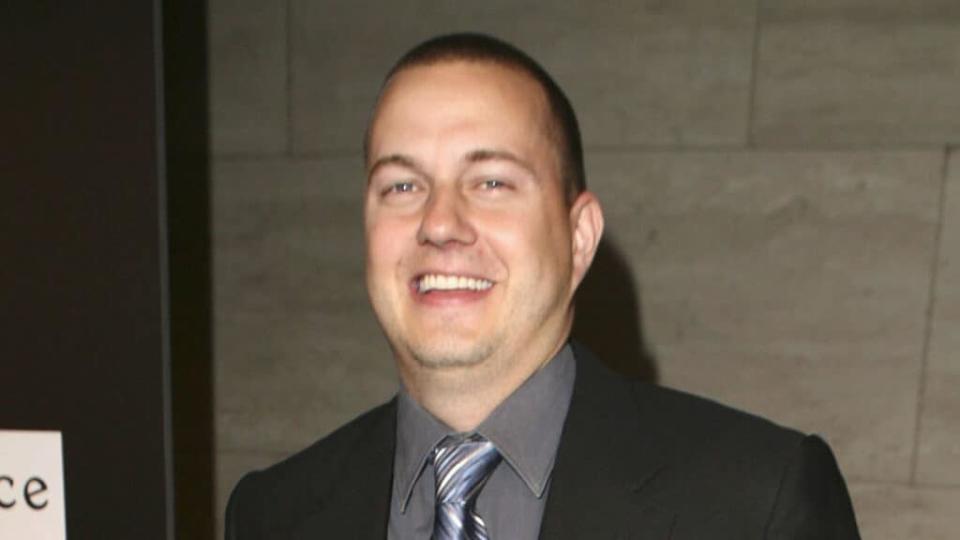Rash of Suicides in Hollywood Shines Spotlight on Depression and Social Media Pressure
- Oops!Something went wrong.Please try again later.
A recent string of suicides of prominent people in the entertainment industry – and their children – has brought the tragic issue to the forefront once more.
“Extra” television correspondent and former Miss USA Cheslie Kryst; award-winning actress and director Regina King’s son, Ian Alexander, Jr.; Hollywood manager Chris Huvane; Irish singer Sinead O’Connor’s teenage son Shane; former “Bachelorette” contestant Clint Arliss; and 16-year-old “Toddlers and Tiaras” star Kailia Posey are among those who have taken their lives in recent months. (In addition, country legend Naomi Judd died this week after a long battle with mental illness, her family said — though her reps have not confirmed the exact cause of death.)
While the suicide rate in the U.S. appears to be declining, according to the most recent data available, such high-profile deaths are stark reminders that no one is immune, experts say.
“Regardless of where you are with money or access, we all struggle with mental health and it’s OK,” licensed mental health therapist Anim Aweh told TheWrap. “When we begin to normalize it and have conversations around it, I think we can then push the needle forward in terms of accepting that this is it’s something we can all experience. ‘It’s okay. I can get help and that’s OK.'”
Related video: Justin Bieber says marriage wasn't a cure-all for his mental health
People working in certain industries, including the arts, sports and media, have higher suicide rates than the general population, according to the Centers for Disease Control and Prevention. Certain populations, including sexual and gender minorities, veterans, tribal populations and middle-aged adults, are also significantly more likely to die by suicide.
Meanwhile, the global COVID-19 pandemic has forced people into prolonged periods of social isolation, creating greater intensity for those who struggle with depression, said Susan T. Lindau, a licensed clinical social worker and adjunct professor at the USC Suzanne Dworak-Peck School of Social Work. This puts them at higher risk for suicidal thoughts.
About 40% of adults in the United States struggled with a mental or behavioral health condition such as anxiety, depression, trauma and substance use disorders in the first summer of the pandemic, according to the CDC.
“We are social animals,” Lindau said. “We need that connection.”

Suicide rates jumped 35% between 2000 and 2018, but declined by 2% in 2019 and according to the CDC‘s preliminary data, they fell by 3% in 2020. Still, rates for those aged 25-34 increased 5% in 2020, the first year of the pandemic.
USC’s Lindau noted that her clients, whose ages range mostly from the mid-20s to mid-30a, often don’t have the skills to tolerate social isolation and need to learn how to do that. She said she gives them recommendations on how to take care of themselves, such as going to a yoga class, talking to their friends online or setting up social connections that don’t require face-to-face contact.
“Fortunately, now, we are able to do more face to face,” Lindau said. “I think they’re feeling a lot of relief with more openness.”
The news of Kryst’s suicide in January caught Aweh by surprise. The Atlanta-based clinical social worker and co-founder of Aweh Supports happened upon some of Kryst’s TikTok videos two days before her tragic death in New York City, admiring the 30-year-old influencer’s signature curls and her successful transition from attorney to Emmy-nominated TV presenter.
“I treat people every day so that really took me by a whirlwind, and really just helped me solidify that anybody can be going through everything and social media isn’t real,” said Aweh, co-founder of Aweh Supports, which offers mental health therapy, coaching and support for African American women.
Aweh noted Kryst’s public profile is also what high-functioning depression can look like for many Black women and women in general. On the outside, they can seem to have it all together, meeting their goals and looking fabulous, she said. But on the inside, they feel like they are really hurting and feel they don’t have an outlet or someone to talk to.
Paolina Milana, a Southern California-based author, podcaster and founder of Madness to Magic book and life coaching, has written about coping with severe depression during very challenging times. Milana had been the main caretaker of her Sicilian-American mother and younger sister – both of whom suffered from paranoid schizophrenia – when she made the decision to end all of their lives.
Milana, then in her 20s and still grieving the death of her beloved father, had a dream job as a staff writer for a daily newspaper in a Chicago suburb. But dealing with her mother’s and sister’s psychotic episodes, being their sole breadwinner and trying to meet all of their complex daily needs left her “on the brink.”
Had the owner of a women’s club not sensed that something seemed off with Milana and driven her to see a psychologist friend that same night, three people could have been killed in an act of desperation, she said.

“I could not see any way out. I tried a few times to get out, and unfortunately, life f—ing smacked me back,” Milana told TheWrap. “I think my circumstances without a doubt 100% contributed to my depression, my suicidal thoughts, my idea of doing away with myself, my mother and my sister.”
Milana’s 2021 book, “Committed: A Memoir of Madness in the Family,” recounts her struggles to stay sane despite the madness surrounding her.
While the drivers are often complex, recent suicides have reignited concern over the role social media can play in young people’s overall mental health.
Alexander Jr., a singer-songwriter and DJ who went by the stage name Desduné, released his latest single weeks before he took his life. He was 26 years old and had recently shared his concerns about social media. “I don’t think Instagram is healthy for me,” he tweeted a week before his death.
Kryst also talked about the negativity she encountered on social media in a personal essay for Allure magazine in March 2021.
“I can’t tell you how many times I have deleted comments on my social media pages that had vomit emojis and insults telling me I wasn’t pretty enough to be Miss USA or that my muscular build was actually a ‘man body,’” she wrote. “And that was just my looks. My opinions, on the other hand, were enough to make a traditional pageant fan clutch their pearls.”
On social media platforms like TikTok and Instagram, where people’s appearance and snapshots of their lives are on display, there is pressure — for influencers and regular users — to give the impression of having a perfect life, Aweh noted.
“With that pressure to be perfect, there’s no room for vulnerability, no room for errors, so I feel like that pressure to be perfect doesn’t make space for people to struggle with their depression or show that in public,” Aweh said.
There’s also pressure to meet idealized beauty standards that are equated to European beauty standards, she said. Aweh also noted Black people deal with other pressures, including receiving less pay than their white counterparts and facing other forms of implicit and explicit biases that impact how they function in their daily lives.
“That’s why it’s important for us to have spaces where we have allies that support us or intervene and step up and speak up when those things do take place, or we can get to a place in a healthy medium where we can have conversations, or that therapy becomes accessible, or coaching becomes accessible, or we get access to funding,” she said.

Experts say that social media has both advantages and disadvantages when it comes to mental health.
For example, a 10-year study by Brigham Young University in Utah published in the Journal of Youth and Adolescence last year found that young teens who used social media for at least two hours a day — at the beginning of the study and then greatly increased their use over time — were at a higher clinical risk for suicide as emerging adults.
Social media can be used to diminish or negate the importance of good mental health care, USC’s Lindau said. That’s why she believes it would be useful to have more restrictions on social media posts that misrepresent the efficacy of mental health care.
But social media can also be used to legitimize good psychiatric care and mental health support, making it easier for people and children to say “I’m feeling really sad. I think I need help,” Lindau explained.
And despite gains in destigmatizing mental health conditions, there’s still a reluctance on the part of many people suffering from such conditions to acknowledge they are struggling and seek help.
“Many cultures do not accept the fact that mental health is just as much a medical issue as having the flu is,” Lindau said.

Manhattan-based writer Daphne Merkin, who has suffered from depression for most of her life, was first hospitalized for suicidal thoughts while in grade school. Merkin, the author of “This Close to Happy: A Reckoning with Depression,” was also hospitalized a couple of times as an adult but never got “that close” to going through with it.
Talking to psychiatrists and therapists sometimes helped, she said. Hospitalization – as unpleasant as it was – provided her “a safe environment” while taking the pressure off her regular life.
Not wanting to leave “a horrendous legacy” for her daughter and the curiosity of wanting to write something new or read another book also kept her going, she explained. Another factor that helped, she said, was “being told by someone I was willing to listen to that I wouldn’t always feel as depressed, thus suicidal, as I was feeling then.”
People can’t be talked out of depression if they aren’t willing to talk about the impulse with family, friends or professionals, she noted.
While Western culture is supposed to be “outspoken” about such sensitive subjects, that is only selectively true. One can speak without shame about being in rehab, which is even considered fashionable or chic with its prevalence among celebrities, but not about being depressed, she said. There is still a phobic attitude toward depression and suicide.
“People both fear ‘what if they (themselves) felt this way’ and reject it,” said Merkin, who has also penned two novels and two collections of essays. “Culture still treats depression and suicide as alien… in a way not comprehensible, when obviously, if you’re human and alive and empathic, they’re not incomprehensible.”
One of the most helpful things we can do is be willing to ask our friends and family what’s really going on with them, particularly when we notice a change in behavior, Lindau said. We can also point them to professional help when needed in a way that doesn’t diminish how powerful that can be.
“A really simple statement is, ‘I’d really love to help you but I’m your good friend so you probably wouldn’t be comfortable but why don’t I help you find someone you can talk to?” Lindau suggested.
And if a situation is possibly critical, you can take someone to the emergency room right away, contact a local suicide crisis response team or depending on the circumstances, call the police, Aweh noted. “I always tell people to trust your gut,” she said. “I tell my clinicians in training ‘trust your gut.’ When in doubt, just report it.”
The National Suicide Prevention Lifeline 1-800-273-TALK (8255) is a free, 24/7 confidential service that can provide people in suicidal crisis or emotional distress, or those around them, with support, information and local resources.
You are reading a WrapPRO exclusive article that has been made available (for free) today. If you would like to have access to all of our member-only stories and virtual events, please CLICK HERE to receive 7 free days of WrapPRO –> The Essential Source for Entertainment Insiders.


